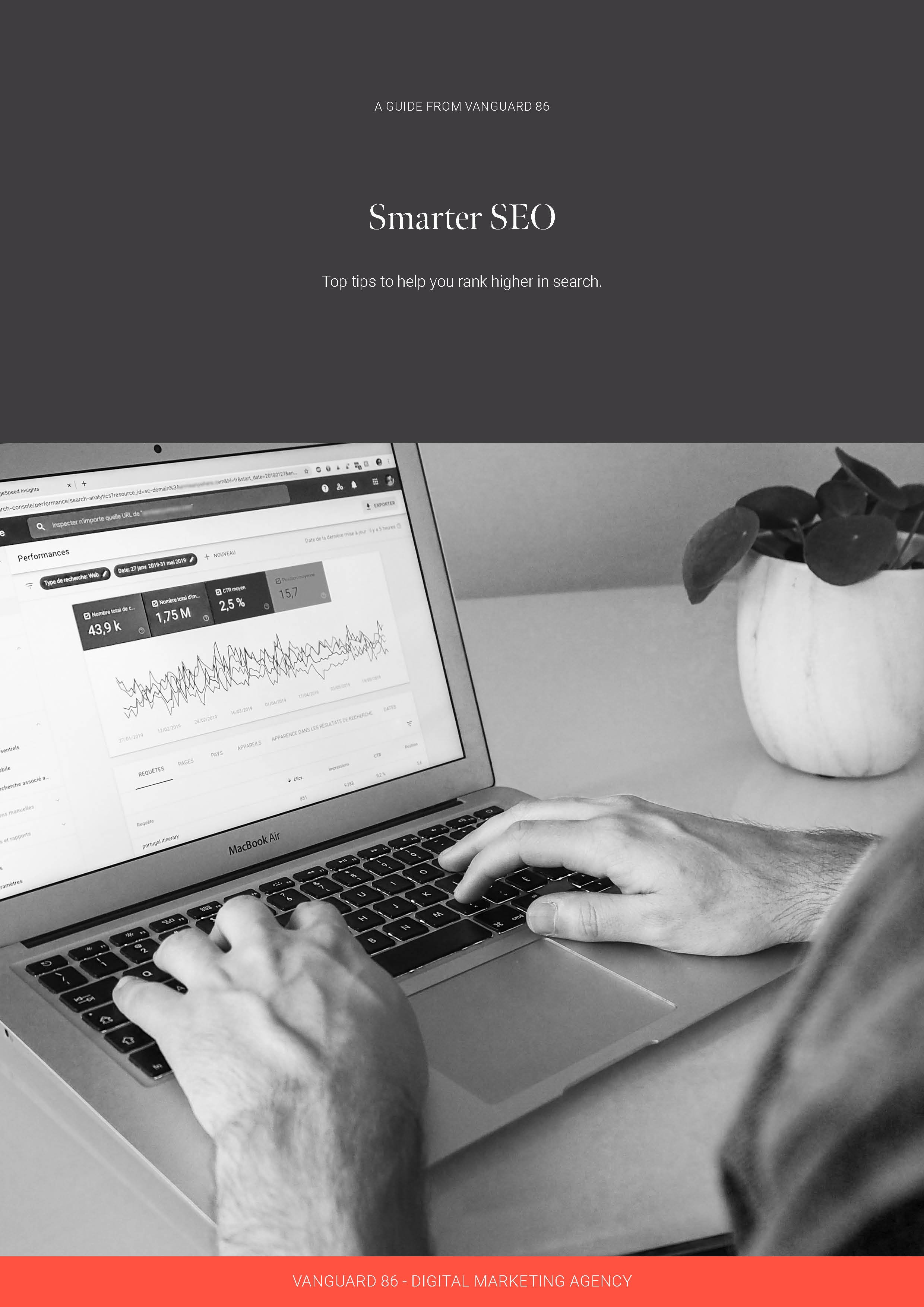Marketing agency VS in-house marketer: Which is better?
The decision to engage with a digital marketing agency, or bring your digital marketing in-house is a significant one. It’s also a decision you might make once, and need to reassess again in the future as your needs change.
This decision is often called insourcing versus outsourcing. If you’re unfamiliar with these terms, here’s a basic breakdown:
What is marketing insourcing?
Insourcing is where an organisation hires the required skills or specialties to meet the needs of the business directly. It comes in the form of:
- Upskilling existing team members
- Hiring for a new position
- Employing contractors
What is marketing outsourcing?
Outsourcing is where you find an external partner to provide the required services. These can often be found using the following third-party types:
- Freelancers
- Agencies
- White label partners
Skill-sourcing options for digital marketing span all of the above. The diverse and often specialist skills required in digital marketing mean that businesses often use one, or all of these channels, at any given time. It’s not uncommon for businesses to use a mix of insourced and outsourced solutions. So which is best for you?
What is a blended approach?
The reason this mixed approach of insourced and outsourced is so common is that one individual is unable to span the entirety of the marketing mix. This becomes quite apparent when you consider the typical marketing activities a business will conduct in a month. Commonly, this will include:
- Email marketing (EDMs and automated)
- Social media posting
- Paid advertising (social media and Google)
- Remarketing
- Blogging
- Website design and development
- Video creation
- Photography
- Reporting and analysis
- Graphic design & brochure creation
Those are just the core activities. And while a single employee may be able to do some of those tasks they may not be able to do all of them.
Often, a company will hire a marketing manager to oversee internal relations, strategy, planning, and overseeing agency partners. They may end up hiring a few internal team members to handle videography, photography, copywriting, and ad-hoc social media. this may seem to leave little space for outsourced marketing but there's often still a requirement for external support in Google ads, Conversion Rate Optimisation (CRO), EDM optimisation, social media advertising, website design and development, graphic design, and more.
In-house marketing versus outsourced digital marketing, which is better?
The decision to outsource or insource your digital marketing isn’t necessarily an either/or decision. There are several situations where a blended approach will better suit the needs of the business. These situations include, but aren’t limited to:
- Filling a skills gap within your organisation while you assess the long-term business need.
- Servicing a short-term business need, either for a single complex project or to cover leave.
- Supporting your internal team’s workload without long-term hiring contracts.
If a business identifies that they need one or more marketing specialists for their business then their options are to hire them internally or engage with a freelancer, or agency that delivers these skills.
What are the pros and cons of insourced digital marketing?
Having an in-house team of digital marketers is an attractive prospect. You can hire the best fit culturally for your organisation and educate them on what it means to convey the brand’s persona online. Other benefits include:
- Full focus on your business and its goals
- Work output only limited by internal barriers
- Tailored output to your business’s ‘voice’
- Internal collaboration
- Cost control
- Intimate knowledge of your products/services and client needs
Some of the counterpoints and considerations include:
- Cost of talent acquisition
- Risk of poor cultural fit
- Cost to exit bad-fit staff
- Scaleability
- Difficulty in downsizing if need decreases
- Can be reactive or hard to prove ROI
What are the pros and cons of outsourced digital marketing to an agency?
Having an outsourced team of digital marketers in an agency is an equally attractive prospect, that also carries counter considerations worth addressing. The agency has likely hired or sourced specialists in various roles and has taken the time and effort to develop internal processes and training. The other benefits of hiring an agency include:
- The burden of hiring and training is on the agency.
- Shared knowledge across specialties and other client campaigns.
- Outside of business hierarchy so better able to challenge internal group think.
Some of the counterpoints and considerations include:
- Limits on monthly scope of work, or higher hourly rate for work.
- Low understanding of your business’s products/services.
- Likely less reactionary or able to ‘drop everything’ for the latest idea, unless at a cost.
As you can see the argument for and against agencies or in-house marketing isn’t clear-cut. Every business is different and therefore their marketing structure will likely be unique. A case can be made either way, but the right fit will depend on your business's size, phase of growth, and immediate growth plans.
Why should you use a digital marketing agency?
There are several benefits to supplementing your internal marketing with an agency or entirely outsourcing your marketing to one. Here are a few.
Expertise and Specialisation:
Agencies often have specialised knowledge and expertise in various aspects of digital marketing, including SEO, PPC, social media, and content marketing. They stay up-to-date on industry trends and can provide a level of expertise that may be challenging for an in-house team to match.
Cost Efficiency:
Hiring and training an in-house marketing team can be expensive and time-consuming. Agencies often provide a cost-effective solution, allowing businesses to access a team of specialists without the overhead costs associated with hiring and maintaining a full-time staff.
Access to Cutting-Edge Tools and Technologies:
Digital marketing agencies invest in advanced tools and technologies to optimise campaigns, analyze data, and stay ahead of the competition. By working with an agency, a business can leverage these tools without the need for significant upfront investments.
Scalability:
Agencies offer scalability, allowing businesses to scale their marketing efforts up or down based on their current needs. This flexibility is particularly beneficial for companies with fluctuating marketing demands.
Diverse Skill Sets:
Digital marketing agencies often have a diverse team with a range of skills and experiences. This diversity can be valuable in addressing various marketing challenges and adapting strategies to different market conditions. You may only need a few hours of graphic design work a month so hiring a part-time employee may be more costly than a freelancer or an agency.
Objective Perspective:
Agencies provide an external and objective perspective on marketing strategies. They can offer insights and recommendations without being influenced by internal company politics or biases. Often this is gained across a group of clients across various industries unlocking invaluable insight.
Reduced Administrative Burden:
Managing an in-house marketing team involves administrative tasks such as hiring, training, and day-to-day management. By working with an agency, businesses can reduce this administrative burden and focus on core activities.
Measurable Results:
Digital marketing agencies often provide detailed analytics and reporting, allowing businesses to track the performance of campaigns effectively. This focus on measurable results can be a compelling argument for those seeking a clear return on investment.
An internal hire might not feel pressure to deliver results as they are unlikely to be fired if marketing doesn’t perform. The same can’t be said for marketing agencies.
Adaptability to Industry Changes:
The digital marketing landscape is dynamic, with constant changes in algorithms, trends, and platforms. Agencies are well-positioned to adapt quickly to these changes, ensuring that marketing strategies remain effective and up-to-date.
Risk Mitigation:
Engaging a digital marketing agency can help spread the risk associated with marketing efforts. If a particular campaign or strategy is not performing as expected, agencies can quickly pivot and adjust strategies to minimize potential losses.
When presenting these arguments, it's crucial to align them with the specific needs and goals of the organization, demonstrating how keeping a digital marketing agency can contribute to the overall success of the business.
In conclusion
There isn't a single correct approach in the discussion of insourced marketing vs outsourced marketing.
An internal marketing manager could be supplemented by one or more agencies, depending on the company's goals and growth plan. Likewise, an owner-operator may rely on a marketing agency to kick-off consistent marketing before assessing the need to hire the internal resources to plug the gap between the agency's capabilities and the business's needs.
To discover whether an agency is a good fit for you discuss your needs with a specialist. They will be able to discuss your requirements and whether their programmes or solutions will help meet those needs. You can then assess the cost and time burden on your business and validate that against the concept of insourcing the same deliverables.
You can book a chat with our specialist by booking a time that suits you below.
Download your free guide to Smarter SEO
Good SEO can mean the difference between your business being found, or you being lost in the growing mass of online resources. This guide is designed to help you rise above your competition.
Download now



/Typewriter_keys_letters_words_keyboard.jpg?width=352&name=Typewriter_keys_letters_words_keyboard.jpg)